




| ENERGY
|
GAIN ENERGY APPRENTICE
LEVEL1
|
THE ENERGY BLOCKAGE REMOVAL
PROCESS
|
THE KARMA CLEARING
PROCESS APPRENTICE LEVEL3
|
MASTERY
OF RELATIONSHIPS TANTRA APPRENTICE LEVEL4
|
ZEN: THE PATH OF PARADOX
VOL. 3
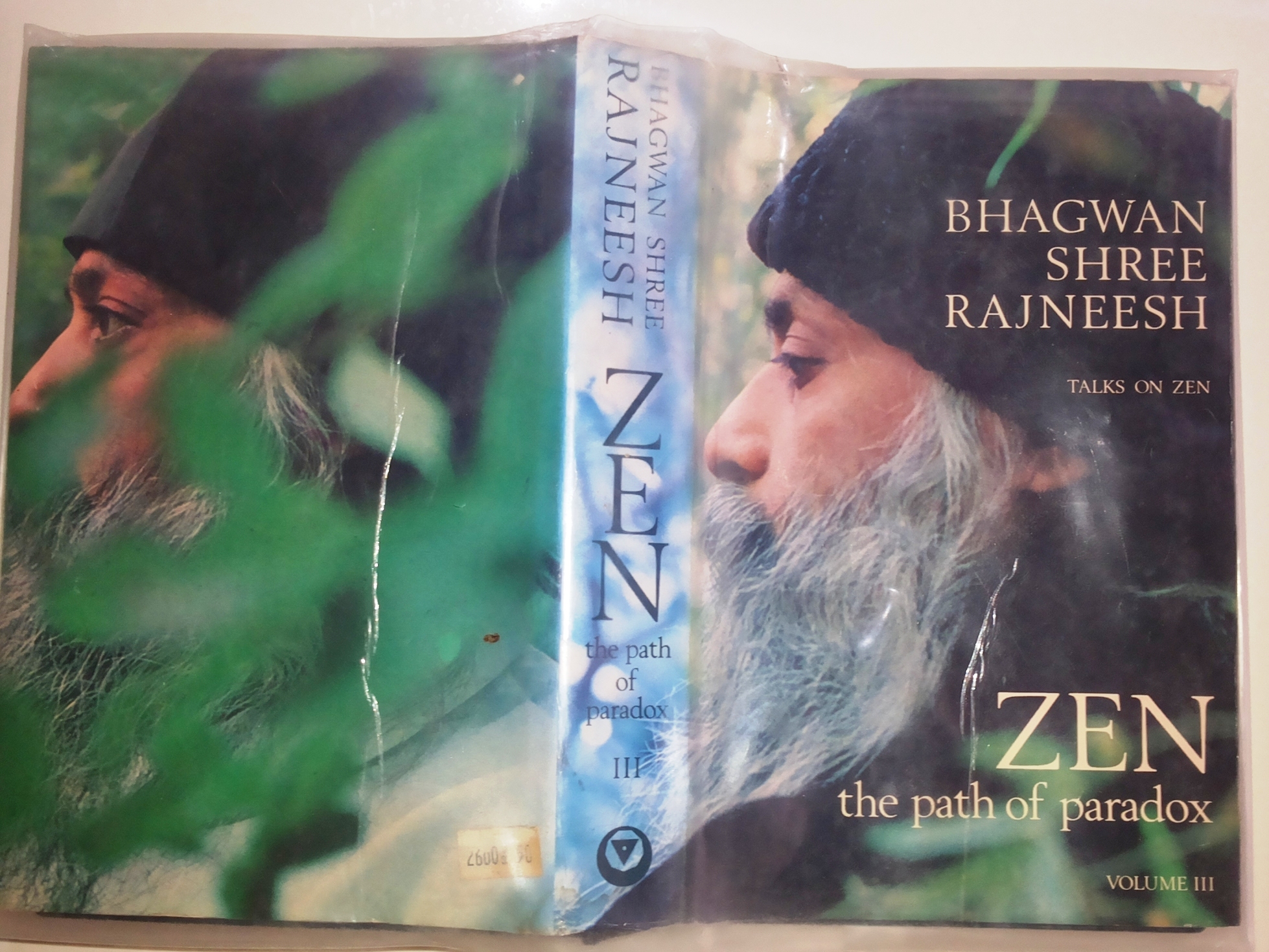
MY FIRST EDITION BOOK OF OSHO'S ZEN THE PATH OF PARADOX WHICH I HAVE READ FOR OVER 25 YEARS - READINGS OF POSITIVITY FROM A ENLIGHTENED MASTER WHICH GO DEEP INTO YOU..
Chapter 3: Take no Thought for the Morrow

Energy Enhancement Enlightened Texts Zen Paradox, Vol. 3
WHILE VISITING GASAN, A UNIVERSITY STUDENT ASKED "HAVE YOU EVER READ THE CHRISTIAN BIBLE?"
"NO, READ IT TO ME," SAID GASAN.
THE STUDENT OPENED THE BIBLE AND READ FROM ST. MATTHEW: "AND WHY TAKE YE THOUGHT FOR RAIMENT? CONSIDER THE LILIES OF THE FIELD, HOW THEY GROW. THEY TOIL NOT, NEITHER DO THEY SPIN, AND YET I SAY UNTO YOU THAT EVEN SOLOMON IN ALL HIS GLORY WAS NOT ARRAYED LIKE ONE OF THESE.... TAKE THEREFORE NO THOUGHT FOR THE MORROW, FOR THE MORROW SHALL TAKE THOUGHT FOR THE THINGS OF ITSELF."
GASAN SAID: "WHOEVER UTTERED THOSE WORDS I CONSIDER AN ENLIGHTENED MAN."
THE STUDENT CONTINUED READING: "ASK AND IT SHALL BE GIVEN YOU, SEEK AND YE SHALL FIND, KNOCK AND IT SHALL BE OPENED UNTO YOU. FOR EVERYONE THAT ASKETH RECEIVETH, AND HE THAT SEEKETH FINDETH, AND TO HIM THAT KNOCKETH, IT SHALL BE OPENED."
GASAN REMARKED: "THAT IS EXCELLENT. WHOEVER SAID THAT IS NOT FAR FROM BUDDHAHOOD."
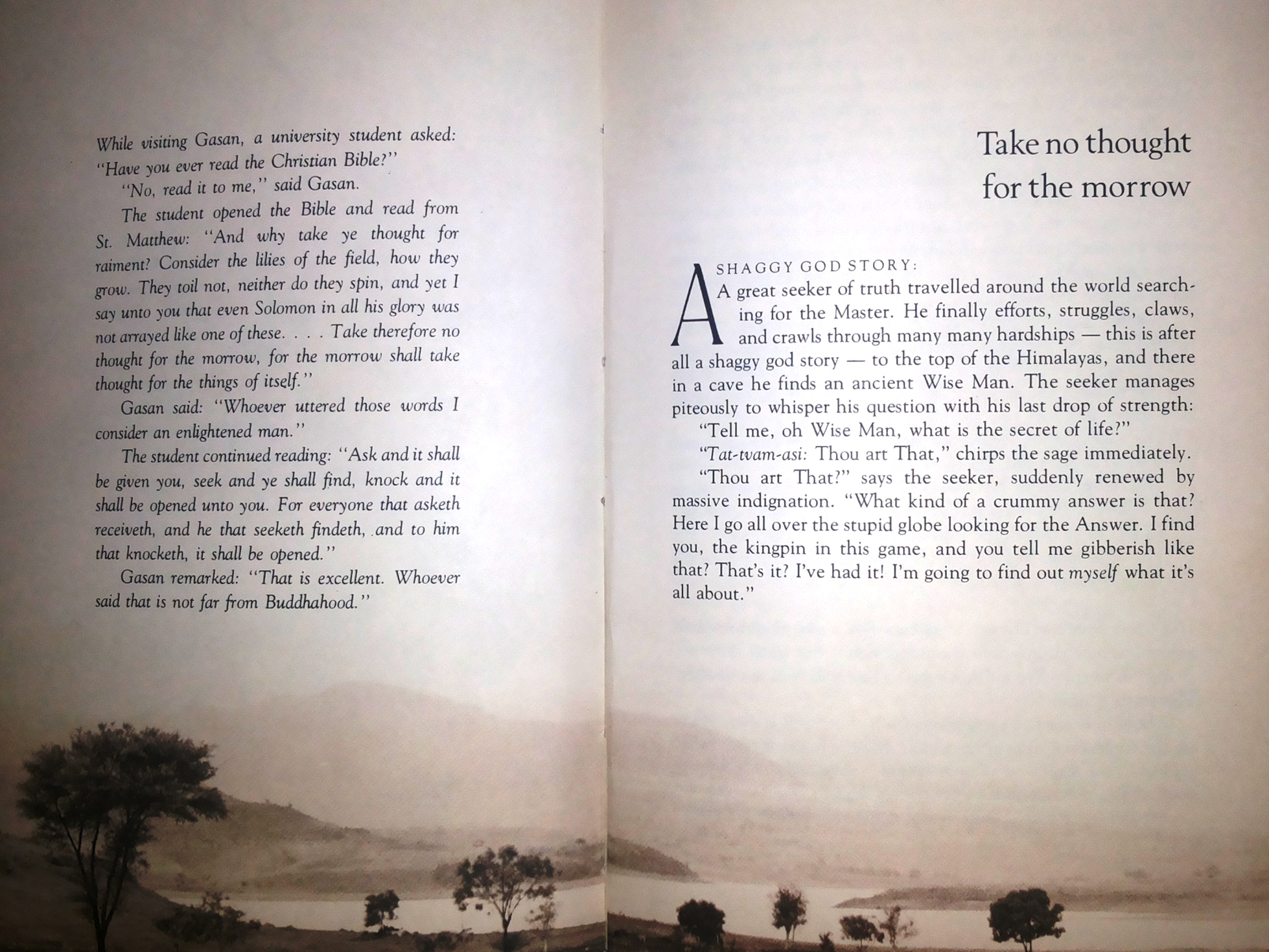
MY FIRST EDITION BOOK OF OSHO'S ZEN THE PATH OF PARADOX WHICH I HAVE READ FOR OVER 25 YEARS - READINGS OF POSITIVITY FROM A ENLIGHTENED MASTER WHICH GO DEEP INTO YOU..
A SHAGGY GOD STORY:
A great seeker of truth travelled around the world searching for the Master. He finally efforts, struggles, claws. and crawls through many many hardships -- this is after all a shaggy god story -- to the top of the Himalayas, and there in a cave he finds an ancient Wise Man. The seeker manages piteously to whisper his question with his last drop of strength:
"Tell me, oh Wise Man, what is the secret of life?"
"TAT-TVAM-ASI: Thou art That," chirps the sage immediately.
"Thou art That?" says the seeker, suddenly renewed by massive indignation. "What kind of a crummy answer is that? Here I go all over the stupid globe looking for the Answer. I find you, the kingpin in this game, and you tell me gibberish like that? That's it? I've had it! I'm going to find out MYSELF what it is all about."
So the seeker spins around and starts tromping down the mountain. He spends the next twenty-five years of his life studying Sufism, Zen, Shakti, Bhakti, Gyana and Prana Yoga; the Kabbalah, the Koran, the Bible, the Vedas, the Upanishads, the Tao Te Ching... and whatnot... you name it... and learns seventeen martial arts, hangs around with every Teacher worth his capital 'T'; takes every mind control, actualization and transpersonal psychology seminar invented; meditates, levitates and fulminates for godawful months on end; and finally after receiving mucho acknowledgement from his peers that he is one high and mighty dude, hikes back into the mountains and confronts the old sage again.
"Come on, I am in the club now," says the seeker; "I have studied these terrifically enlightening things. I am a guru myself, finally. You can tell me -- I mean the REAL straight-dope-low-down about the secret of life -- I am one of the gang now. How about it?"
The sage giggles, looks him straight between the eyes, and blithers, "TAT-TVAM-ASI: Thou art That."
The seeker digs it, but his mind won't quit and it is howling mad. "Cripes!" his mind has him say aloud. "That's ridiculous. That's the same drivel you told me twenty-five years ago!"
The sage looks at him nonplussed: "SO? the truth does not change in twenty-five years."
The truth does not change in twenty-five years, the truth does not change in twenty-five thousand years, the truth does not change in twenty-five million years. The truth does not change. The truth is one.
Thousands are the expressions for it, but truth is one. Many are the fingers pointing at the moon, but the moon is one. Don't get lost in the fingers, don't get too much attached to the fingers. Look at the message and forget the medium.
Mediums are many, truth is not many. Metaphors are many, truth is not many. Truth is one, eternal, timeless, transcendental. About truth this thing has to be understood very deeply. This understanding will liberate you from being a Christian, from being a Hindu, from being a Jain, from being a Buddhist, from being a Mohammedan. This understanding will make you religious for the first time.
Religion is not confined to any mediums. Many, many efforts have been made -- it is not confined to any effort to express it. All that is expressed is something totally different from the metaphors, the parables, the words, the language, in which it is expressed. Remember the essential and forget the non-essential. Buddha, Mahavir, Krishna, Christ, Mohammed -- they all say the same thing, obviously in different ways. They are different people so they speak different languages. They are differently brought up, their metaphors are different. But how can they speak different truths? Truth is one.
Look! -- even science is one. There is no Hindu chemistry and there is no Christian mathematics. The truths of science are one. If the truth is one about matter, why should it be otherwise about consciousness? When the truth is one about the periphery, why should it be different as far as the center is concerned? The center is one, the peripheries can be different from each other. The periphery is big enough to be divided. The center is not even big enough to be divided, the center is indivisible. Yes, there is a possibility of there being a Christian mathematics and a Hindu mathematics, but there is no possibility of there being a Christian religion and a Hindu religion -- because mathematics exists on the periphery; it is the world of the superficial.
Religion is at the very core of reality, the center of the cyclone. It is one! We can look at it with different eyes, and we can have different glasses on our eyes -- different coloured glasses. We can have different mind constructs, ideologies to interpret it. But that which is being interpreted is the one. Religion is one. Religions are not religion but just sects. Religions are just ways to point at THE religion -- fingers pointing to the moon.
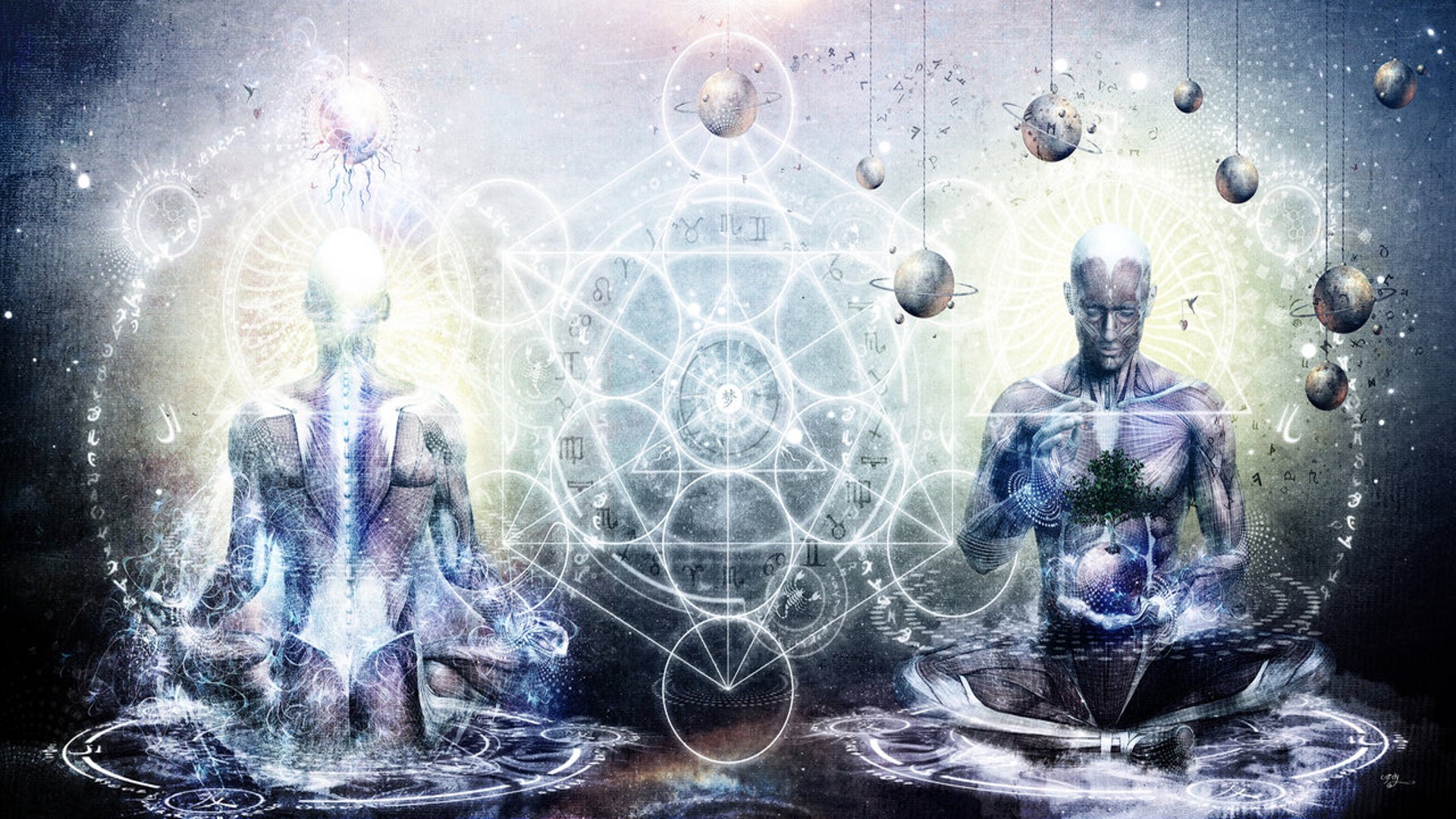
Let it sink deep into you.
Just the other day there was a question from Divya that "When you speak on Buddha, it seems Buddha is a Zen Master. When you speak on Mahavir, it seems Mahavir is a Zen Master. When you speak on Christ, it seems Christ is a Zen Master. When you speak on somebody else, it looks like he is the Zen Master."
Yes, they are all Zen Masters, because Zen is not a religion. Zen is the ESSENTIAL core of all religions. Zen means DHYAN. The Sanskrit root for Zen is DHYAN. Then DHYAN became in Pali, ZAN. Then in China it became CHAN, and then in Japan it became Zen. But the root is DHYAN. DHYAN is the essential thing. Dhyan means a state of thoughtless awareness, when all thoughts disappear and you look into reality without any hindrance, when all dust has been dropped and the mirror reflects perfectly -- as is the case -- that which is reflected without any interpretation on your part. That's what Zen is!
Divya IS right. And you may be puzzled many times that I go on speaking on Tilopa, Mohammed, Mahavir, Krishna, Christ. But I go on saying the same thing. These are just different excuses to bring you home. If you don't listen, if you don't understand the way Buddha speaks, I will speak the way Mohammed speaks. If you don't understand that, I will speak the way Tilopa speaks. I have infinite hope that in some way, some day, some metaphor will hit you, and will open your heart.
This sword? -- good. If this is not going to kill you, then another sword. I am not attached to swords. My whole effort is how to annihilate you. Any sword will do. I am not interested that you should be killed only by this sword: Buddha's sword or Mahavir's, or Christ's -- any sword will do, any temple will do. The prayer has to arise, the meditativeness has to happen.
So the first thing before we try to enter this beautiful story: many are the lies -- only lies can be many, truth cannot be many. How can there be two truths? Either they will agree with each other, then they will become one; or they will disagree with each other, then only one can be true, or maybe both are false, but both cannot be true. Truth cannot be two.
Opinions are many. Opinions are lies, man-invented lies. For example, we are sitting here, one thousand persons sitting here. If you think, you are one thousand. Everybody thinks in his own way; everybody will have his own thoughts, will spin his own dreams. But if you are all silent, nobody is thinking, then there are not one thousand persons sitting here: there is simply one silence, one zero -- big zero -- and all have dissolved into it.
When you meditate, the ego disappears. With the ego all the distinctions, differences, disappear. If you all are meditative here, in this moment, then here there is nobody. Only one prevails -- the unknown -- only God prevails. You disappear, you lose your boundaries, you melt, you merge in the ocean. When you are thinking, you are separate. When you are thinking, you create noise, you create a boundary around you, you are fenced off against the other. When you are thinking, you are for something and against something. Thinking always creates pros and cons.
When you are thinking, you are a Hindu or a Mohammedan. When you are not thinking, who are you? -- Hindu or Mohammedan? You cannot say. If you say Hindu, you are still thinking. If you say Mohammedan, you are still thinking. When you are not thinking, you are nobody. Only God is. You are a hollow bamboo, a flute, and the song is God's not yours.
Lies are many, because lies are inventions of man. You can go on inventing them. That's why people are interested so much in lies, because lies give thrill -- they are new. Truth is never new, it is the ancientmost -- the same, the same, the same.... Truth is boring. Lies are very, very intriguing; lies are very interesting. Hence you love fiction, hence you go to the movies. Life is all around! You don't see this life -- you go to a movie, you pay for it. For three hours you are lost in a fictitious world, unreal, but you enjoy it. Why are you enjoying it? It is new.
But truth is always the same. In fact to call it old is not right either, because it has never been new so how can it be old? Anything that is new will become old, anything that is old must have been new some time or other. Only the new becomes old. Truth is neither. That's what we mean in India when we say truth is SANATANA -- eternal -- neither new nor old. As old as anything and as new as anything, but basically neither.
Only a very, very intelligent person can listen to truth. The stupid mind hankers for fictions, gossip -- not for the gospel. The stupid mind is interested in gossiping. There is thrill! Something new is happening! You read the newspaper in the morning. You don't read the Gita any more, you don't read the Bible any more, you don't read Dhammapada. You read the newspaper; the newspaper is the world of lies -- the world of the politician, the world of fictions. You enjoy the newspaper tremendously, because you have the feeling that something new may have happened, something new is possible.
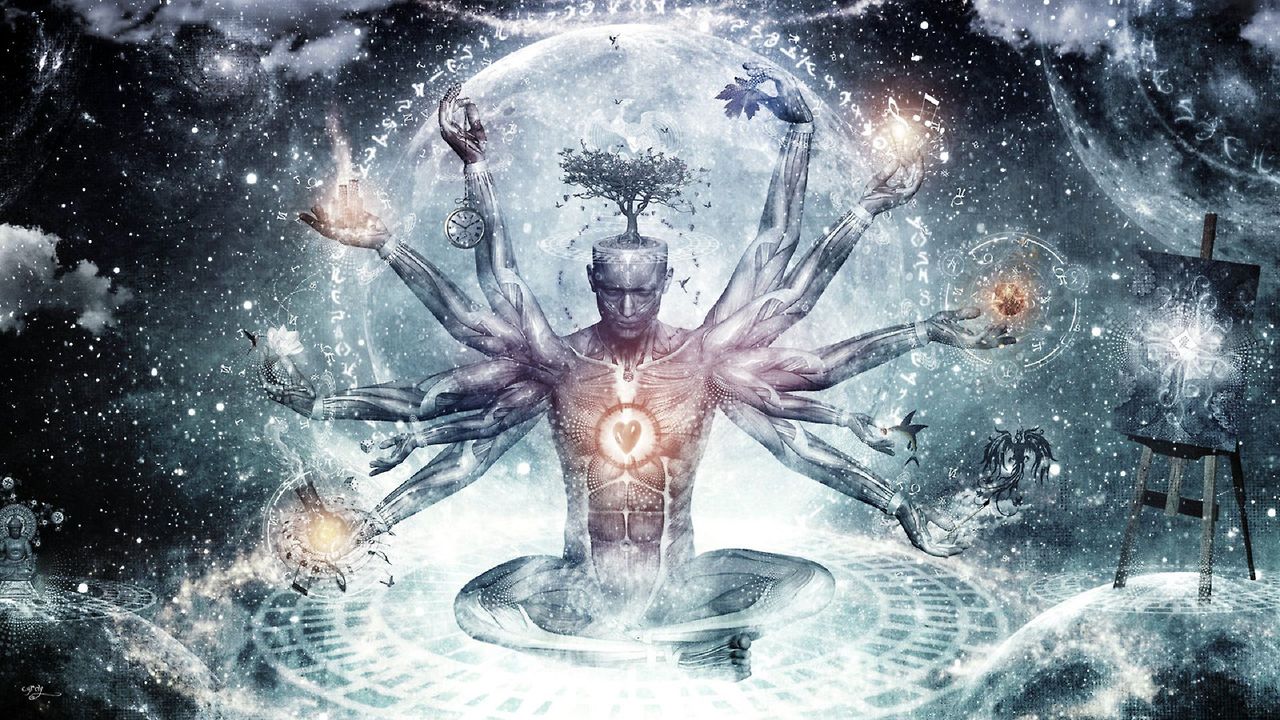
I have heard that once a journalist died and went directly to heaven. He was a journalist and a big name, and he didn't bother whether he was entitled to go to heaven or not. He simply knocked on the door -- and all the great doors in the world were always open to him: prime ministers', presidents', and all the VIPs'.
He knocked at the door. St. Peter opened the door, inquired who he was, and he said, "Don't you know me? Have you never heard my name? Don't you read the newspapers?"
St. Peter said, "No, newspapers don't come here. And we have our full quota of journalists in heaven -- twelve -- we have the quota fixed. Even those twelve are useless, because there is no news here! It is just a formality. They are here, but no newspaper is published. There is nothing to publish. For news to happen, mad people are needed."
George Bernard Shaw has said, "When a dog bites a man it is not news; when a man bites a dog, it is news." A dog biting a man? What news is this? This ordinary. But a man biting a dog becomes news. Only mad people create news. So if you want real news you have to go to mad cities -- New Delhi, Peking, Moscow, Washington, London -- there you find news all around. News, and news and news!
So he said, "Please, you go to the other place, to hell. There they need many newspeople -- great journalists are needed and respected there, and much happens there. Here nothing happens! It is always the same. Nothing changes here, it is eternally the same. Silence prevails, absolute calm prevails. No gossiping, no fighting, no war, no murder, no rape -- nothing happens. Things are here as if they are not."
But the journalist was intent. He said, "Twelve you have. Just give me twenty-four hours' time. I will persuade somebody to go to the other place, and then you can manage for me. I want to he here."
St. Peter took pity on him and gave him twenty-four hours to persuade somebody.
He spread the news -- he was a journalist -- he immediately entered and started talking to people: "A new paper, a very new paper, is being published in hell, and on a good salary, big house, big car, big staff, editors, news editors are needed." He spread the news.
After twenty-four hours when he came back to St. Peter, St. Peter closed the door and said, "Don't try to get out. All the twelve have escaped!"
But then the journalist became a little suspicious. He said, "All the twelve have gone? I was thinking one or two at the most. All the twelve have gone? Then let me go out. Then there must be something in it."
He himself has created the news. It is a lie, he knows, but when you tell lies to people many times, by and by you start believing it yourself. Lies have a tendency to become truths, just repetition is needed.
That's what Adolf Hitler says in his autobiography, MEIN KAMPF. That is the only distinction he makes between truth and a lie: a lie is just the truth told for the first time; and a truth is a lie told many times. That is the only distinction he makes. And he knows well, he did it well himself.
You can go ON repeating a lie again and again and again, and sooner or later people will start believing it. When they hear it again and again, the impact... it creates a groove in their minds. And when many people start believing, you will start believing yourself, because you live according to people.
"If so many people are believing, there must be something in it," said the journalist. "I want to go, I don't want to be here. And I have looked into your heaven -- it is useless. Nothing is happening here and nothing will ever happen here."
SO REMAIN IN A STATE WHERE NOTHING HAPPENS, is what DHYAN is, meditation is. Meditation is heaven.
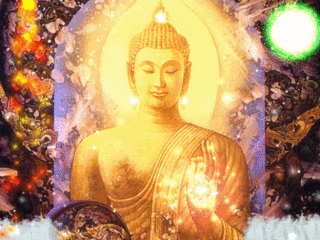
Buddha talks about it, Jesus talks about it, Zarathustra talks about it, Lao Tzu talks about it. And they are talking about the SAME phenomenon. It is the same energy, the same kind of experience.
That's why Divya IS right. When I am talking, I am talking about the same thing again and again. These are different excuses. I use them like jumping boards. If any one message hits you, ALL messages have hit you. If you can understand Buddha, you have understood ALL -- Mahavir, Krishna, Christ -- all. If you understand Christ, you have understood all.
A single enlightened person understood and you have understood all... the whole past of all the enlightened people! Not only that, but the whole future too. All the Buddhas that have happened and all the Buddhas that will happen are contained in one understanding of a single Buddha.
So remember, truth is not an opinion. It is not knowledge. Knowledge changes, knowledge accumulates, new facts are discovered. Knowledge cannot remain the same. So truth is not knowledge. Science changes every day, you know.
Just a few years ago, something was thought to be the truth, now it is no more thought to be the truth. Newton's truths are no more truths. Einstein has destroyed the world of Newton completely. Einstein's truths will not remain truths very long. They are being destroyed already. In three hundred years of science, at least thirty times the structure of science has changed. The structure changes every day because new facts are discovered. And there is no end to it. Knowledge is accumulative.
When a new fact is discovered, you have to change the old theory. And it may be that you have discovered the new fact because of the old theory. But then the new fact has to be accommodated and the theory has to be changed. Science goes on changing.
Now scientists say, "We will never arrive at any absolute truth. All is hypothetical." By 'hypothetical' they mean it is true because it works, and it is true as long as it works. When something else works better, that will be truth. So truth is utilitarian in the scientific world.
But in religion, truth is not knowledge, not opinion. It does not depend on facts. TRUTH IS KNOWING, SEEING, BEING. Truth has nothing to do with the object, truth has something to do with your subjectivity. It has nothing to do with seeing something outside there as an object. It has something to do with the very quality of your seeing, of your perception, of your vision. That's why in India, we call philosophy DARSHAN. DARSHAN means the capacity to see.
WHAT you see is the world of science; HOW you see is the world of art. And when seeing is pure -- of the object and of the how too, when seeing is pure of science and art both -- it is religion. Let me repeat it so you follow it rightly.
When you look at an object, say you look at a tree, your whole consciousness is directed at the tree as an object. The very word 'object' means that which obstructs you. It is standing there against you, outside you. The arrow is looking at the tree, you have forgotten yourself.
A scientist at work completely forgets himself, he has to. In fact, that is a fundamental of science, that the scientist should not interfere, that he should not bring any values, that he should not bring any judgements, that he should not bring any preferences -- likes and dislikes -- he should be a detached observer, just detached. He should be almost nil there, just an observer. And whatsoever the fact is, he should note it down as it is. It is objective.
Then comes a poet, or a painter, or a singer, and looks at the tree. He is also looking at the tree, but he brings something else -- he is no more a detached observer. He is a lover; he has an aesthetic quality to his vision. He is searching for beauty. He has a certain leaning towards beauty; knowingly, unknowingly, he is looking for beauty. He will see beauty in the same tree where a scientist will see only chemicals. The scientist will see only colours, but the painter will see something different -- not just colours, but the pattern, the gestalt of colours, the poetry of colours. The scientist will simply measure the weight of the tree, or the height. The poet is not concerned with the height or the measurement; he is concerned with the spirit of the tree, not the outer skin of the tree but the inner being -- the very spirit of the tree. The poet treats the tree as a person, as an end unto itself.
The scientist looks with utilitarian eyes; the poet looks with aesthetic eyes -- he brings a methodology of how to look at the tree. There are ways, poetic ways, of looking at the tree; only then does the tree reveal its beauty and its mystery. When a religious person looks at the tree, he is neither concerned with the object of the tree, nor with the beauty of the tree. He is more concerned with his capacity to see. He is more concerned with the question: "What is this which reflects the tree inside me? Who is this subject? Who am I?"
Scientists ask: "Who is obstructing my path?" And the religious person asks: "Who am I who is being obstructed by the tree?" The question takes a total turn -- a one-hundred-and-eighty-degree turn. Between the religious person and the scientist stands the artist -- in the middle. The artist is a bridge: the artist has something of the scientist and something of the mystic. He is half-half. That's why artists are very tense people -- they are pulled in two directions. Artists go insane very easily. He is constantly dragged into two opposite, diametrically opposite directions -- something of the subject and something of the object. And he is at ease nowhere.
The scientist is at ease with the object; the religious person is at ease with his subjectivity. Truth is not an object, truth is not a fact; it is a realization. And when truth happens, it happens in toto.
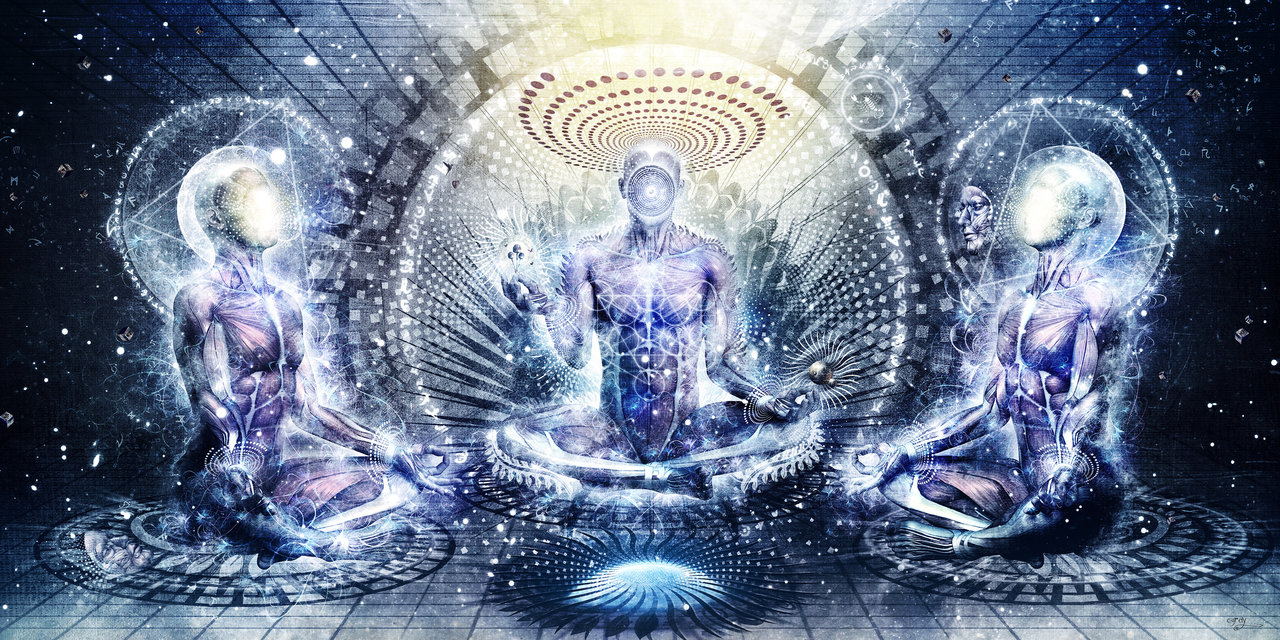
Another thing to be understood, then this story will be very simple and you will love it and you will be able to meditate your path into it.
Facts come one by one. You can never be certain that you have known all the facts. New ways of looking, new instruments, new devices, and you may come to know new facts about the old thing. Facts are endless, they come only in part, in serial form -- one comes, then another comes. They are standing in a queue. Gradually they come. Yes, Newton knew some facts, Einstein knows more, Heisenberg even more, and so on and so forth. Your children will know more than you know about the factual world. Their children will know even more. That's why when a person goes to study science, he thinks his parents are foolish. Naturally, because HE knows more.
Knowledge goes on increasing. And there is no end to it, and it is never conclusive. There comes no moment when you can say, "Now, THIS IS the conclusion."
Truth happens in toto, as a totality. SUDDENLY, IT IS THERE, in all its being. Not that first you know a little bit of God, then a little bit more, then a little bit more -- no. It is like lightning. The whole is revealed. That is the meaning of the word 'revelation'.
Facts are discovered by and by truth is revealed. It comes total, it is conclusive. That's why truth creates trust; doubt simply disappears. The conclusion has arrived.
The truth that religious people are talking about -- Buddha and Jesus -- is a realization. And another thing: this realization is not something new that you have attained today. It is something that has been there always, that was there but that you had not looked into. You were keeping your back to it. So realization is nothing but a recognition.
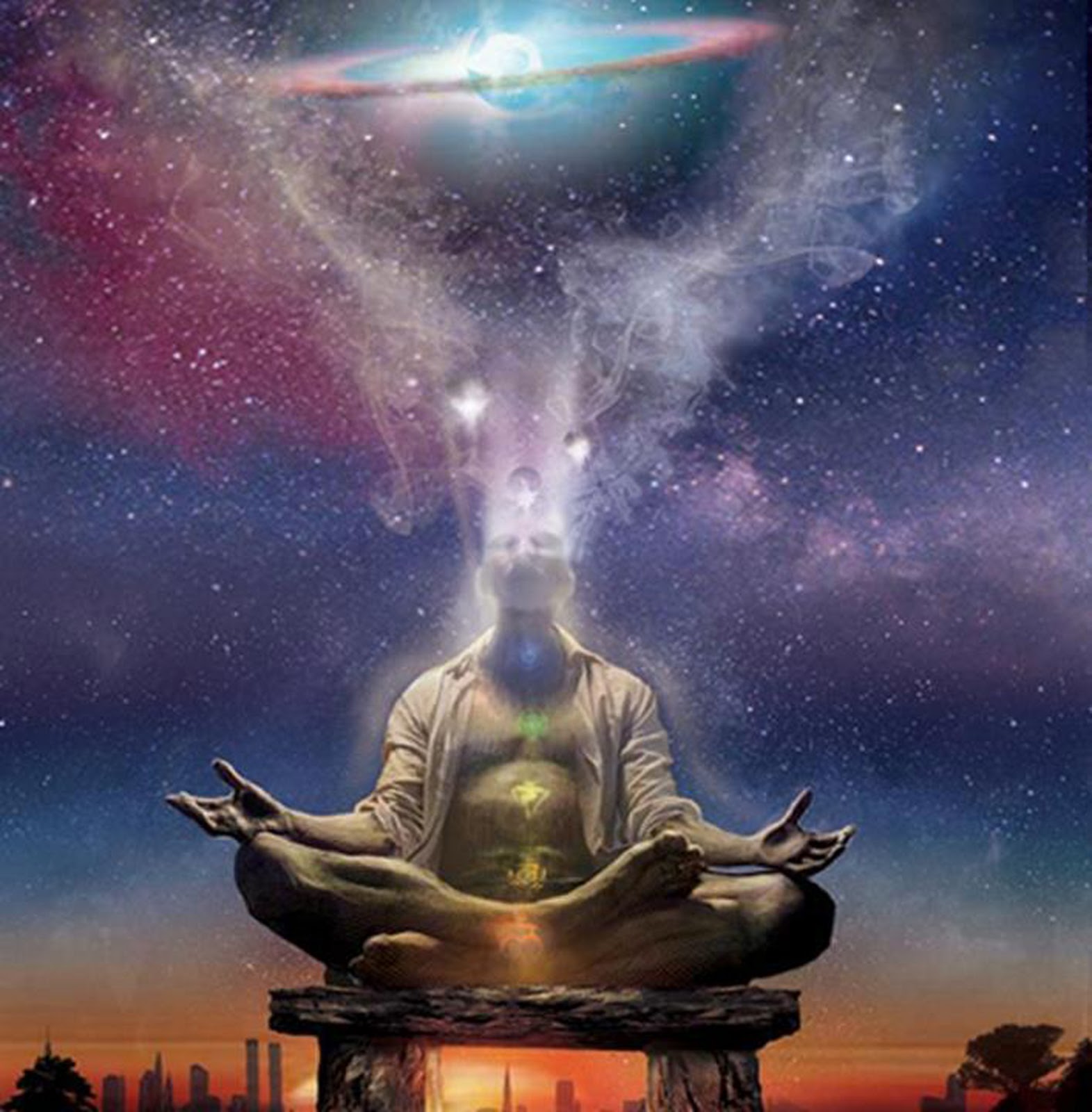
I have heard a Zen story:
One day Hyakujo was out taking a walk with his Master Baso when a flock of wild geese flew overhead.
"What are they?" Baso asked.
"They are wild geese."
"Where are they flying?"
"They have already flown away, Master."
At this point in the game, Baso suddenly grabbed Hyakujo's nose and twisted it until, overcome by pain, Hyakujo cried out, "Oh, oh!"
"You say they have flown away," said Baso, "but really they have been here from the very beginning."
Where can they fly away to? Where? There is nowhere to go, they have been always here, and they are here. There is no other space than the here, and there is no other time than the now.
Baso is a great Master. Hyakujo himself became a great Master. This story must have happened before he became a Master himself. The wild geese flying, naturally, Baso asks, "Where have they gone? Where are they now?" And the disciple answers, "They have flown away."
Now a turn in the story. Zen Masters use any device. He twisted the nose of his disciple until, overcome by pain, Hyakujo cried out, "Oh, oh!"
"You say they have flown away," said Baso, "but really they have been here from the very beginning. And they ARE here! And they will be here. Nothing can go out of existence and nothing can come into existence. Everything simply is!"
Existence is simultaneous. We are sitting here. In the sky, the sun is there and the clouds. And beyond the sun, stars and stars and stars -- no end. There are stars whose light takes millions of years to reach the earth. There are stars whose light has not reached yet since the earth came into existence. And there are stars whose light may never reach the earth, because they are so far away. But we all exist simultaneously. At this moment those stars are in existence as we are in existence.
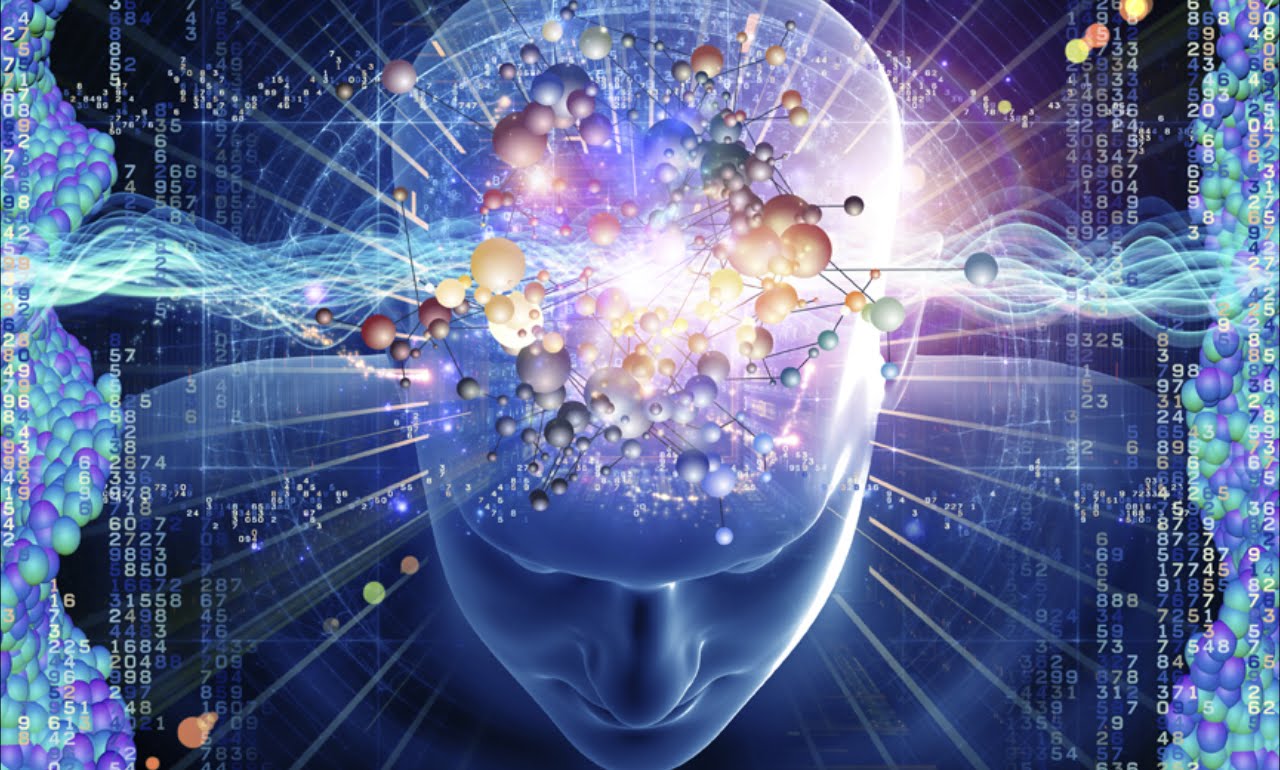
The world is simultaneous, it is not a sequence. Things are not standing in a queue. We are ALL together. WHERE can anybody go?
When Raman Maharshi was dying, somebody cried and said, "Bhagwan, are you leaving US?"
He opened his eyes and he said, "Where? but where can I go? I will be here. You be at ease. Where can I go?"
Ramakrishna was dying and his wife started crying, naturally. And Ramakrishna said, "Stop crying! Have you not heard me? Have you not seen me? Has your being with me just been meaningless? Look at me! Where can I go? I will be here."
Everything is. All that you need to know truth is that you should not be preoccupied. That's what meditation is all about. If you are also herenow, with no thoughts roaming in your mind... because THOUGHTS take you astray. They either take you into the past or they take you into the future. They don't allow you the present. They close the door. Your eyes become clouded, your mirror becomes too heavy with dust. Then it reflects nothing. When there are no thoughts in the mind, truth is. Or let me say it in another way: when the mind is not, truth is.
Mind is the barrier. Mind dropped, truth is revealed, recognized. Now you can see the difference. Knowledge is through mind, and truth is through no-mind. Knowledge is memory; truth is disappearance of memory, mind and all.
A monk asked Ummon -- Ummon is one of the very few Zen Masters whose each statement is a diamond -- "What are the activities of a Buddha?"
Ummon answered, "I have not the slightest idea" -- and he was a Buddha himself, a fully awakened man. And he says, "I have not the slightest idea."
The monk then said, "Why haven't you any idea?"
Ummon replied, "I just want to keep my no-idea."
A tremendously beautiful statement: "I just want to keep my no-idea" -- because to be in the no-idea one is in truth. When there is no thought, you are truth; when there is thought, you are again clouded, you have lost the track.
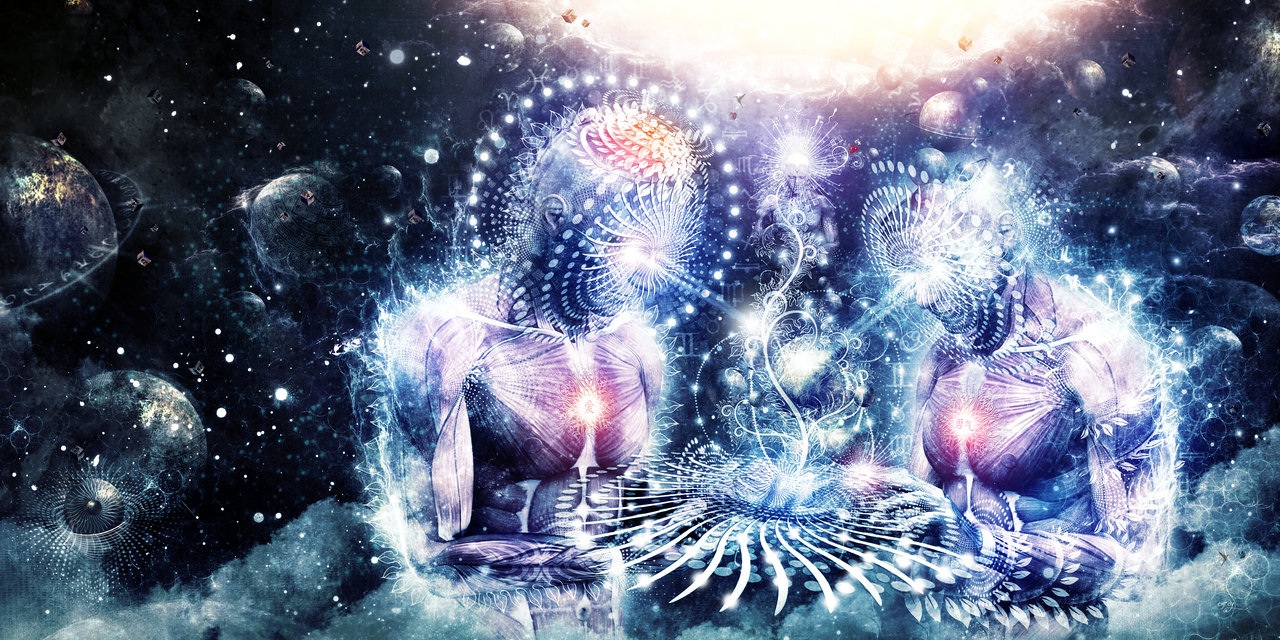
Another time a seeker came to Ummon, and he was walking in the garden. And the seeker said, "Sir, you know so much. I am always puzzled at how much you know!"
Ummon laughed uproariously and said, "Know? What are you talking about? I don't know a thing. I am one of the most ignorant persons in the world."
The man said, "Why are you saying that? Is not knowledge good? "
Ummon said, "Knowledge may be good, but ignorance is very intimate."
Ignorance is very intimate. Knowledge may be good -- knowledge can be good or bad, but is never intimate. It is something alien, something foreign, you gather it from the outside. It is never intimate. But not-knowing is very intimate.
Watch! Knowledge is always borrowed: not-knowing is your nature. And that which comes out of your innermost nature IS yours. It is very intimate, you can depend on it. That which comes from the outside is not dependable, it is not reliable. At the most you can use it, but you will never become enlightened.
Enlightenment is to fall into such intimacy with your core, that not even a small curtain of thought divides you.
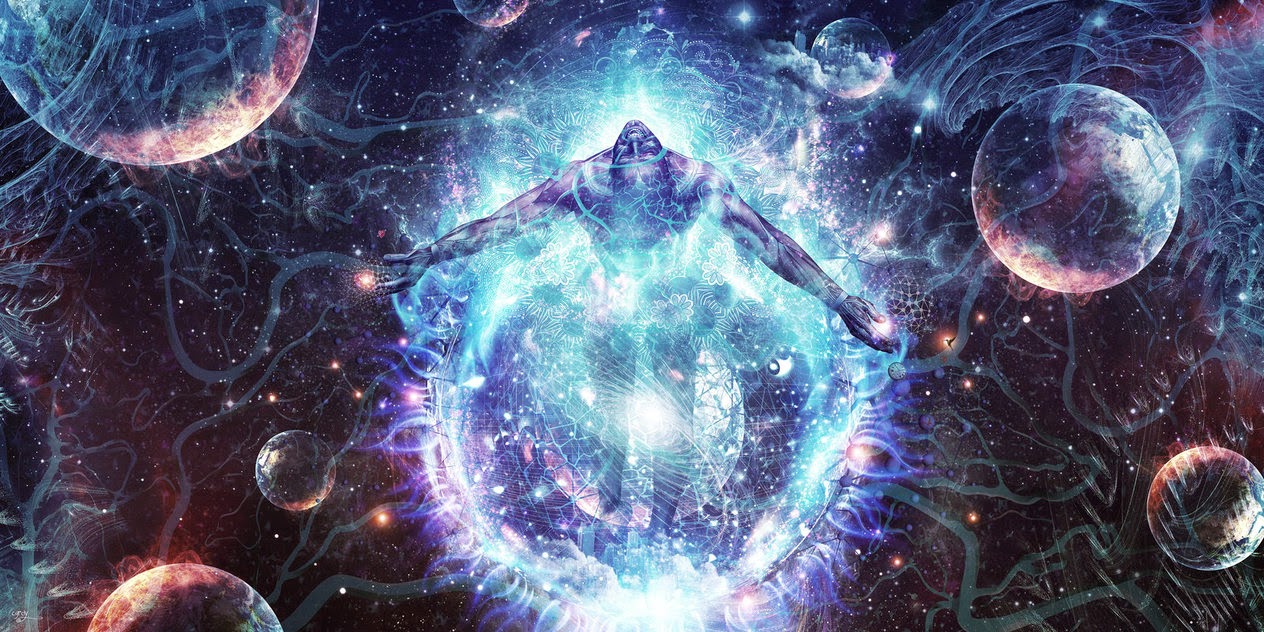
Jalaluddin Rumi, a Sufi mystic, has said: "Sell your cleverness and sell all your knowledge and buy bewilderment. Cleverness is mere opinion, bewilderment is intuition. One comes to God through being bewildered."
Attain to the eyes of wonder, of ignorance, of innocence; attain to the eyes of intimacy. Not knowing, you are tremendously valuable; knowing, you are just ordinary.
Mind functions through logic, reason, mathematics, argument, proof. Existence has no proof. Existence never tries to prove anything, it is simply there. It is just there. If you are available you will know it, if you are preoccupied you will not know it.
It happened:
A lady of the upper classes gets visited by a renowned professor of philosophy. He looks with great interest at the parrot which the lady keeps.
"What is that?" he asks, pointing at two strings dangling from each of the parrot's legs.
"Oh," she says, "this is a very intelligent animal. If I pull one string he starts reciting Shakespeare. If I pull the other he starts singing Kalidas."
The professor wrinkles his forehead, thinks for some time, and says, "And what happens if you pull both strings at once?"
At that the parrot shouts, "Then I hit the bloody bottom, you damn fool!"
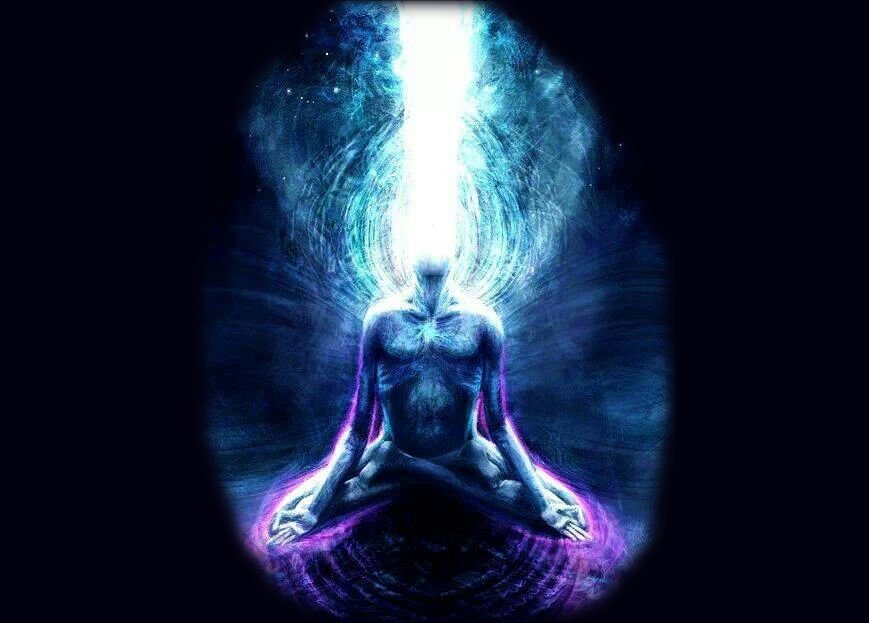
Now this type of a question can be asked only by a professor, and that, too, a professor of philosophy -- preoccupied with why? what? how? Continuously questioning, questioning, questioning, never looking at the reality as it is, never looking at simple facts; making great complexities out of simple facts. A philosopher cannot be at ease with simple things, he needs problems. When there are problems he is at ease. He is at home. When there is no problem, he is very restless. Then he does not know what to do.
Darshan is not philosophy. Darshan is very very anti-philosophical. DARSHAN means the capacity to see, not the capacity to think. They are utterly different! Thinking has nothing to do with seeing. Seeing is attained only when thinking is dropped.
A few things about thinking: one, it is cumulative, it goes on increasing; it is non-conclusive; there is no end ever coming, so no trust is possible through knowledge. Whatsoever you know, more can be known. And how can you decide right now when more is possible to know? So a man of knowledge remains always in doubt, skeptical. That is the destiny of knowledge itself. And the more you know, the more doubtful you will become, because the more you know, the more you see that more can be known. And there seems to be no end. You can go on and on and on. Life is short. That's why through knowledge no transformation ever happens. One goes on accumulating facts, accumulating facts, and one dies... dies out of the very burden of facts. But no realization ever happens.
Hence, religion says: Be courageous to drop knowledge and buy bewilderment, buy wonder. It is through the eyes of wonder that God is recognized. Those wondering eyes are the eyes of a child, of innocence.
Second: knowledge is limitative -- it is linear. Existence is simultaneous. Knowledge is always partial, never total; it cannot be. You know only so much, so it divides: the known and the unknown -- and existence is one, undivided. There is no boundary between the known and the unknown, it is all one. All boundaries are man-created. So knowledge is limitative and truth is unlimited, infinite, beginningless, endless. Knowledge begins and ends, but truth never begins and never ends.
So to know truth, knowledge can't be the right medium. It is limitative also, because knowledge creates a clinging to the past. All knowledge is of the past. Whatsoever you know has already past. When knowledge is there too much, you become imprisoned in the past, a prisoner of the past. You don't look at the reality that is facing you, you always go roundabout, via the past. You cannot see things as they are, confronting you, encountering you. You don't have any immediate insight into things; you always look through your expertise. Expertise is past, dead, gone.
In knowledge death rules over life. In knowing life rules over death. It is to put things completely upside down.
Third: knowledge is discordant, because it creates a division in your being -- mind becomes separate from the heart, thinking becomes separate from the feeling, and you remain divided. A man of knowledge, by and by, loses all his capacities TO FEEL, and he is losing something tremendously valuable.
God never comes just as a thought. More closely He comes as a feeling, as a love affair. God never comes like a syllogism, He comes like a song. God never comes like arithmetic. He comes sometimes as tears, sometimes as laughter; more so as tears and as laughter. So a person who becomes too much confined in the head loses track of his heart, cannot cry, cannot laugh, cannot dance. He becomes a cripple, he becomes paralyzed. So knowledge is discordant.
Fourth: knowledge is delusive, because it keeps you continuously absorbed into abstractions, which are not realities. You don't know love, you think about love. 'Love' is not the real thing, it is just a word. You don't try to find God; you just go on thinking about the word 'God'. The word 'God' is not God, it is just a label. You can go on thinking about food, and that is not going to satisfy your hunger. You can go on reading a great cookery book, but that is not going to fulfil your hunger either. People go on reading the Bible, Dhammapada, the Gita, and they think something is going to happen. They will waste their whole lives. Their hunger will remain there, their thirst will remain unquenched.
Knowledge is delusive. It creates dreams and delusions, abstractions.
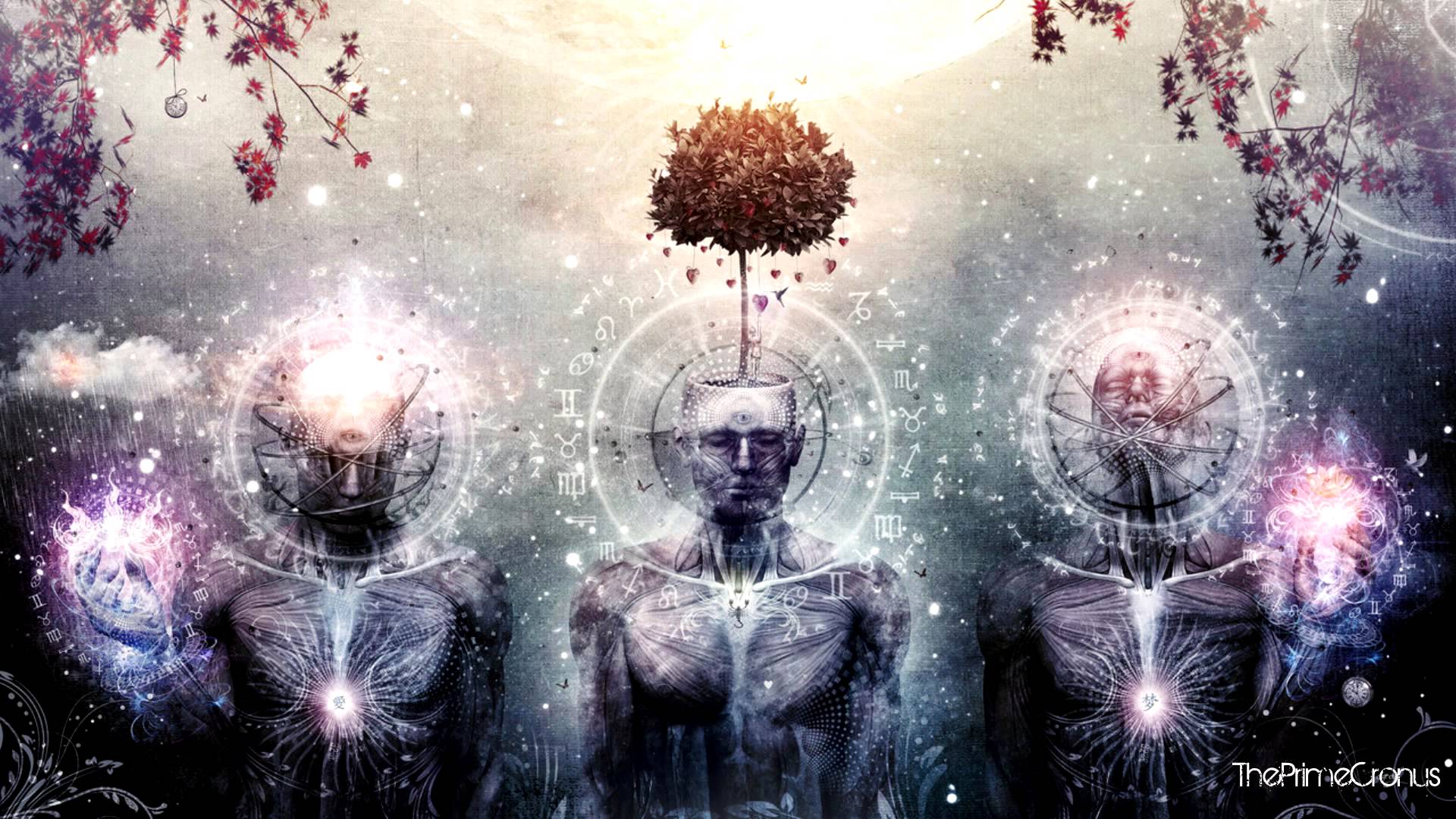
And fifth: knowledge is impotent and wasteful. It is very impotent. It is as if a person is trying to carry the whole ocean in a small spoon -- runs again, fills the spoon, comes home, goes back, fills the spoon, comes home.... It is impotent, IT IS wasteful; it is not going to happen. Knowledge cannot happen because you go on gathering parts -- spoonful parts of the great ocean.
Religion has a totally different approach. Religion says if you want the ocean, go and drown yourself in the ocean, become the ocean. You cannot bring it home, your home will not be able to contain it. Your head is too small. It is good as far as it goes, but you are stretching it beyond its limitations. It is good for the marketplace, it is good for day-to-day usual activities, but to know the eternal... to know that from where we come, and to know that from where everything has come, and to know that where we all are going in again -- it is not possible for the small head. It is very small, very very small. You are creating a great burden for the head.
And people are really burdened by the head. Their heads have become too heavy. Their whole life has become confined to their heads. They don't live anywhere else, they live in their heads. Cerebral -- that's what they have become, and they have lost all joy, all celebration. And they have lost all the qualities of love, of feeling, of the heart. They are no more part of this great jubilation that goes on and on around -- the cuckoo singing, and the flowers blooming, and the birds flying in the sky, and the sun and the moon and the stars, and the roaring ocean and the sands and the mountains. Are you part of this existence? Or are you just confined in your head? And you go thinking dead, dull words.
When thinking is freed from all these five diseases of the mind, then there is no more thinking as such. It becomes knowing -- WU in Chinese, SATORI in Japanese, SAMADHI in Sanskrit. And to attain to WU, SATORI, or SAMADHI is to become enlightened.
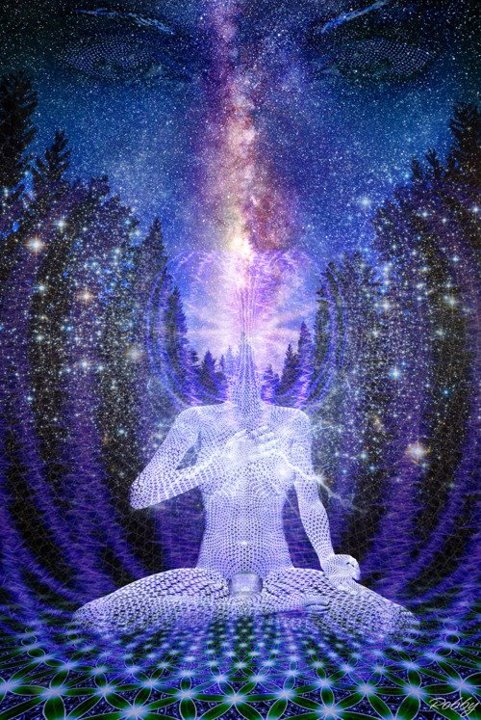
Now this story:
WHILE VISITING GASAN, A UNIVERSITY STUDENT ASKED: "HAVE YOU EVER READ THE CHRISTIAN BIBLE?"
NOW THIS IS A FOOLISH QUESTION to ask an enlightened person. But a student is a student. He knows only books, he does not know anything else. He asked Gasan, "HAVE YOU EVER READ THE CHRISTIAN BIBLE?"
He must have been a Christian, obviously. Gasan has not read the Christian Bible. When you have read the real Bible you need not bother about the Christian Bible. When you have read the real song you need not bother about the Bhagavad Gita. These are just faraway echoes of the real. Yes, something is echoed in Bhagavad Gita, and something is echoed in the Bible, and something is echoed in the Koran. But if you have seen the real, who bothers about photographs? If you have seen me, then who bothers about a line-sketch? It doesn't matter.
Gasan has known the truth, DIRECT. He has experienced it, he has become it. Now to ask Gasan, "Have you read the Christian Bible?" is a foolish question. But all questions are foolish when it comes to asking an enlightened person -- all questions are foolish. Before an enlightened person you can simply bow down. What questions are there? What can you ask? Whatsoever you ask will belong to your mind. Naturally, we go on asking the things that go on crowding in our minds.
The student is a Christian, is a university student, and he must be thinking as all religious people, so-called religious people, think. Christians never read Dhammapada, Buddhists never read the Bible, Hindus never read the Koran, Mohammedans never read the Gita. And they go on believing: "What can there be better?" And they go on believing that the Koran is the last statement, or the Gita is the last statement; everything else is ordinary.
The same must have been the idea of this Christian student. Christians are very full of such bullshit. They think Christ is the only begotten Son of God. Sheer nonsense! Everybody is the ONLY begotten Son of God, because God is the father of all. And not only man, but the trees and the rocks too, belong to God as much as Jesus does. God is everybody's father. And that's what Jesus was trying to say, but man is so foolish.
Jesus goes on saying in his statements -- at least fifty percent of the time he says, "I am the Son of Man," and fifty times he says, "I am the Son of God." Why does he go on repeating these two things again and again: Son of Man and Son of God? He wants to create a synthesis. He is saying every Son of Man is a Son of God -- just like me. Just as I am the Son of Man and yet the Son of God -- SO are you! So is everybody: TAT-TVAM-ASI -- Thou art That.
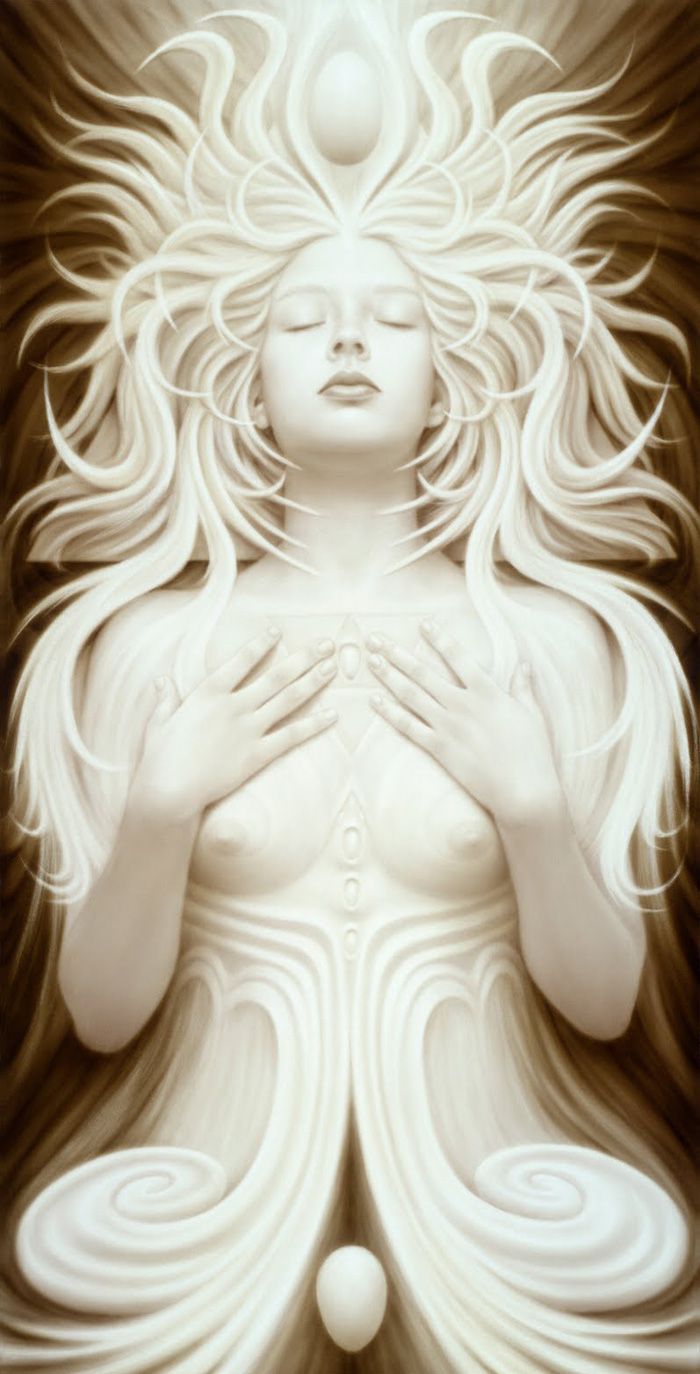
But this Christian student has come to ask Gasan, "Have you read the Christian Bible?" He must be thinking, "He will be surprised!" Or maybe he was thinking that he would be antagonistic. Maybe he would try to argue against the Bible because he is a Buddhist.
"NO," SAID GASAN, "READ IT TO ME."
"But you can read it to me. I will listen."
A man of understanding is always available; whatsoever the message you bring, he is available. He has no prejudice and he has no pride. A man of such an enlightened consciousness as Gasan says, "Yes, you read it. I will listen to it." There is NOTHING any more to know! He knows the ultimate, but this humbleness is part of enlightenment. He is ready to learn. He KNOWS ALL. There is nothing left to learn any more, but a man of understanding is always open.
In Zen they have a special statement about it. They call it 'the beginner's mind'. They say the Zen person always keeps the beginner's mind, he never becomes an expert. He is always at the beginning of everything. He remains always a disciple -- even a Master. He is ready to learn, he is not closed, he is always vulnerable, he is open. Any message you bring, he is not saying from the very beginning that "I know all. No need to read the Bible to me. You take your Bible back home." No, he says, you can read it."
This is the beginner's mind. This phrase, 'beginner's mind', is of great importance. Have you not watched it? When you start doing something, just in the beginning, there is such joy. You start learning to drive -- there is such joy. But after a month when you have learned, all joy disappears. It is boring, it is just a routine. Then you go on driving. You don't hear the humming sound of the engine, you don't feel the air passing through, you don't see the rhythmic functioning of the car. You don't see anything. You don't see the trees and the birds and the sun -- nothing, no more. In the beginning, for a few days, it was such a honeymoon -- a honeymoon with the car.
And so are all our experiences. In the beginning everything seems to be so beautiful! You fall in love with a woman, and everything is tremendously beautiful, incredible. And after a few weeks everything is gone, finished. You have come to a dead end, you are looking for another woman or another man. What happens? You lose the beginner's mind.
The beginner's mind is an innocent mind, the beginner's mind is an ignorant mind. The beginner's mind means: you know you don't know. Because you know you don't know, you are ready to learn, available, open. Whatsoever happens you are very, very curious to know everything, you are intrigued with every moment of it -- every bite of it and you are intrigued. There is great joy. Soon you become an expert. The day you become an expert, knowing dies and knowledge starts being gathered.
So a real man of knowing is always a 'beginner's mind'. He never becomes an expert, he remains learning.
"NO," SAID GASAN, "READ IT TO ME."
THE STUDENT OPENED THE BIBLE AND READ FROM ST. MATTHEW: "AND WHY TAKE YE THOUGHT FOR RAIMENT? CONSIDER THE LILIES OF THE FIELD, HOW THEY GROW. THEY TOIL NOT, NEITHER DO THEY SPIN, AND YET I SAY UNTO YOU THAT EVEN SOLOMON IN ALL HIS GLORY WAS NOT ARRAYED LIKE ONE OF THESE.... TAKE THEREFORE NO THOUGHT FOR THE MORROW, FOR THE MORROW SHALL TAKE THOUGHT FOR THE THINGS OF ITSELF."
ONE OF THE GREATEST STATEMENTS EVER MADE by Jesus, or ever made by anybody else. Has incredible meaning and significance.

"AND WHY TAKE YE THOUGHT FOR RAIMENT?"
Jesus is going with his disciples to a town. And, naturally, disciples are always worried -- as everybody else is worried in the world: "Where will we get shelter? Will we be able to stay overnight in this village? Where will we get food? Is somebody going to offer a few clothes for us?" Dusty, dirty, travelling, they are coming to a village, and they don't know what is going to happen, because more often than not the villagers don't receive them well. They throw them out. They are angry at Jesus and his revolutionary statements. Orthodox people don't want to hear such rebellious statements, and Jesus is rebellion, fire.
Buddha is very cool, Jesus is not so cool. You cannot imagine Buddha taking a whip and going into a temple and beating people with the whip. Jesus did that. Buddha is very cool. Buddha is old, Jesus is very young -- he died when he was only thirty-three. You can forgive Jesus, he was very young, the blood was hot. He was very angry at the world, the way things were going.
Buddha was eighty-two when he died. Buddha was forty when he became enlightened. Revolution, those fiery words, had gone down the Ganges; more coolness had entered into his being. The old age brings something new, which is always missed by the young people. Young people may be beautiful, but they are hot. When an old person is really alert, aware, conscious, he is beautiful and he has something which youth always misses: the grace that old age brings. And when grace and beauty meet, this is a great synthesis.
Christ is different, he is very young, very rebellious, very revolutionary, has great ideas to change the world. People are angry -- that's why they crucified him.
Now the disciples must have been worried: "What is going to happen in the next village?" They are tired and hungry. And Jesus says to them... they have not said anything; they are just walking, tired, exhausted, worried. Jesus says to them: "And why take ye thought for raiment? Why do you think continuously about security, safety, bread and butter, and clothes and shelter? Why?"
They are passing by the side of a field and he says, "Consider the lilies of the field... can't you see these lilies in the field? Poor lilies, but how beautiful! How do they grow? If some universal force protects them, why won't that force protect you? If the universal force has not forsaken them, why should it withdraw from you? These small flowers of lilies, they are flowering, growing, they are not afraid. And you are conscious flowers -- God's greatest creation on the earth -- why should you be worried?
"THEY TOIL NOT, NEITHER DO THEY SPIN, AND YET I SAY UNTO YOU THAT EVEN SOLOMON IN ALL HIS GLORY WAS NOT ARRAYED LIKE ONE OF THESE...."
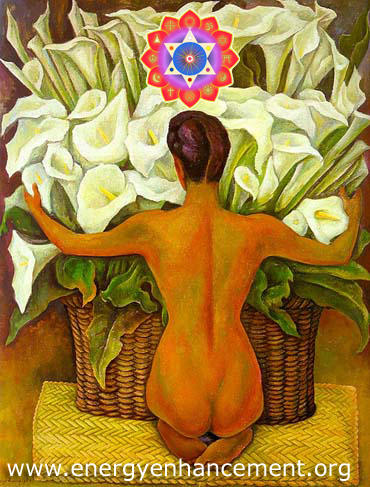
LILY - THE FLOWER OF DEATH, WORSHIPPED BY LIFE, FLOWER, VAGINA
Solomon was the greatest emperor of the Jews, the greatest name in Jewish history. And Jesus says: "I say unto you that even Solomon in all his glory was not arrayed like one of these. Yes, he had beautiful clothes, very costly, studded with diamonds valuable stones and gold, but still.... Look, consider these flowers of lilies. And I say unto you that even Solomon was not so beautiful as these poor flowers are."
What is the difference? Solomon was trying on his own. He was pushing the river, and these flowers are just floating with the river wherever it takes them. Look! the trust of the flowers, of the lilies -- they trust God! Except for man, the whole existence trusts. Trees grow, birds sing, flowers come and go, the sun moves, stars go on spinning, everything is in deep trust. If you look around you will find every stone prayerful, every tree prayerful, every river prayerful, every ocean praying. The whole existence is a temple -- except for man. Something has gone wrong with man. Man is trying to be on his own. That's where misery starts from, worry enters.
"TAKE THEREFORE NO THOUGHT FOR THE MORROW..."
Says Jesus, "Don't think of tomorrow." Don't bring future in. The moment you bring future in, you go astray from God. God is present, future is just fantasy. Future is just your mind, future exists not. Don't bring future in, just drop the future. Live this moment in its totality... Like the lilies in the field, or the stars in the night, or the rivers, or the mountains. Live this moment in utter dedication, in total trust -- and God is available. And God is security, there is no other security. And God is safety, there is no other safety. And God is raiment, there is no other raiment. And God is shelter, there is no other shelter.
"... FOR THE MORROW SHALL TAKE THOUGHT FOR THE THINGS OF ITSELF."
Don't be worried for tomorrow, when it comes the one who has been taking care up to now will take care then too.
This is the ultimate statement of a spiritual being. There is no higher spirituality than this -- to live in God in utter surrender, no private hankering, no private desire to be somebody, something, no ego trip. He has been taking care. He will take care. One simply remains in a let-go.
LET-GO is very basic to Zen. That's why Gasan said:
WHOEVER UTTERED THOSE WORDS I CONSIDER AN ENLIGHTENED MAN."

WHOEVER uttered those words I consider an enlightened man." Gasan says, "I don't know this man, who this man is. Who this Jesus is I don't know. I don't know anything about him. I have never heard of him. But WHOEVER -- these words can come ONLY from an enlightened source! They teach the utter in let-go, the ultimate, the last word!"
This is surrender. This is putting your ego aside. Just living the way God wants you to live. If He brings you to success, it is His success; if He brings you to failure, it is His failure. If He keeps you alive, good; if He kills you, good. You don't have any opinion of your own, you don't judge. You don't show your liking and disliking. This is prayer.
But what do you do with prayer, do you know? You go to the temple and you show your desires. You say to God: "Do this this way! If you do this this way, I will pray to you and I will do many good things for you. If you don't do this this way, I will he angry."
Whenever you pray, you demand. Your very demand destroys the quality of the prayer. It is no more prayer. Prayer can only mean: "I am here, surrendered to you, do whatsoever you like. And whatsoever you do is good. Whatsoever you do -- unconditionally -- is good!"
I have heard about a Sufi mystic who used to pray every morning, every evening, and would say to God, "I am so grateful, Lord. You take so much care of me. I always feel surprised. There are millions and millions of people. How do you remember me? And you take care of me so beautifully. Flawless is your care about me."
One day it happened: the mystic and his disciples passed a town and nobody gave them any bread. People were against Sufism. another day, another day -- for three days continuously they had no food. The disciples were very very angry. And then they heard on the third day in the morning the Master praying to God the same way: "Lord, how much care you take of me! I wonder how you manage. Millions of people in the world and you go on pouring your love towards me, continuously, so flawlessly, not even once have you forgotten me."
One disciple could not bear it any more. He said, "Stop all this nonsense! Three days we have been hungry, three days we have not been given shelter, three days we have slept under the trees in the wild forest, it was dangerous, so to whom are you giving your thanks?"
And the Master said, "But He always gives whatsoever I need. This is what I needed for three days! -- to remain hungry, to remain without shelter. This is what was needed, because He ALWAYS gives that which is needed! Or, you can say it the other way: whatsoever happens is exactly that which is needed. I am thankful. These three days of hunger have taught me much more than anything else in my life. These three days of hunger have shown me much more than anything in my life.
"These three days of insult, humiliation, danger... and I was watching: Can I trust Him still? Yes, I can trust Him still. Even if He keeps me hungry for thirty years, I will trust Him still.' My trust is unconditional -- that's what He has shown me. And I am happy! I am happy because I have this trust. My prayer has remained uncorrupted."
When you really pray, you simply say one thing: "Help me to surrender to you. Don't allow me to think of the morrow, or the yesterday. Don't let me go on thinking about the past which is no more, and don't allow me to think of the future which is not yet -- the present is enough, you are enough, and you take care. I am part of you and I will float with you."
GASAN SAID: "WHOEVER UTTERED THESE WORDS I CONSIDER AN ENLIGHTENED MAN."
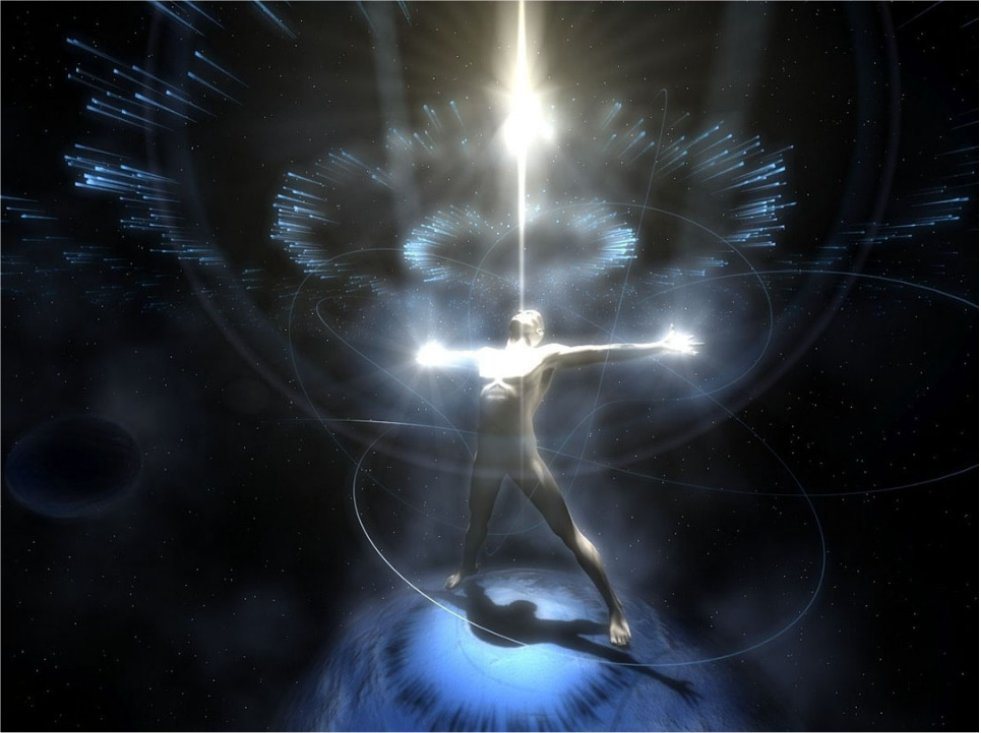
THE STUDENT CONTINUED READING: "ASK AND IT SHALL BE GIVEN YOU, SEEK AND YE SHALL FIND, KNOCK AND IT SHALL BE OPENED UNTO YOU. FOR EVERYONE THAT ASKETH RECEIVETH, AND HE THAT SEEKETH FINDETH, AND TO HIM THAT KNOCKETH, IT SHALL BE OPENED."
GASAN REMARKED: "THAT'S EXCELLENT. WHOEVER SAID THAT IS NOT FAR FROM BUDDHAHOOD."
NOW YOU WILL BE PUZZLED. First he said: WHOSOEVER UTTERED THESE WORDS I CONSIDER AN ENLIGHTENED MAN."
In the next he says: "THAT'S EXCELLENT. WHOEVER SAID THAT IS NOT FAR FROM BUDDHAHOOD."
Something has to be understood.
Not every enlightened person is a Buddha, although every Buddha is an enlightened person. A Buddha means a Master. An enlightened person means one who has arrived himself, but he may not be able to help others. That is a totally different quality, a different skill. Many people can come to the truth, but then they have no skill to spread the truth to people -- they are not Masters, they are enlightened people.
In all traditions that distinction exists. In the Buddha dharma, the distinction is made between the ARHAT... ARHAT means one who has arrived himself. Now his journey is finished, there is nowhere to go. He has come home. But he never bothers to help others; that does not happen to him. That is not his way, that is not natural to him. Nothing is wrong! Nothing is being condemned in it -- that's how it is.
You went into a forest and you saw a beautiful sunset, and you enjoyed it, but you don't paint it. That's how it happens to you. But somebody else is there who paints it and brings the painting back, hack to the marketplace, and shows it to people: "See, I have been there. Such a beautiful sunrise, or sunset. Such a beautiful forest." He brings a message for people.
Somebody may make a song and bring the song to the world. Somebody may bring just the silence, will not say a single word to anybody, will feel that to say anything may be destroying the whole beauty of it -- because words can't say it.
Arhat means: one who has attained.
One who has attained and tries to help others to attain is called a bodhisattva. The difference is: arhat is one who has attained to the ultimate in meditation. Buddha is one who has attained the ultimate in meditation -- now a great compassion arises in him and he goes on spreading it. Now there is no need! For forty-two years Buddha was travelling from one village to another, from one town to another. There was no need! He could have sat under his Bodhi Tree and disappeared there. There was no need to take all this trouble upon himself. There was no need to knock on so many doors. His own gain is not going to be any more! But a great compassion arose in him. That compassion makes a Buddha.
Jains also have two words. One is kewali. Kewali means one who has attained. And the second is teerthankara -- one who has attained, and not only attained but who comes back and creates a boat. Has gone to the other shore, but his compassion brings him back to this shore. Makes a GHAT, creates a boat, invites people, and says, "I know the other shore, you come on. Come on with me." And starts taking people to the other shore. He is a TEERTHANKARA. Thousands of KEWALI, thousands of ARHATS, and only one Buddha or one TEERTHANKARA. Out of millions of people one person becomes enlightened, and out of thousands of enlightened persons, one person becomes a Master. Hence the distinction.
Hearing the second statement...
THE STUDENT CONTINUED READING: "ASK AND IT SHALL BE GIVEN YOU, SEEK AND YE SHALL FIND, KNOCK AND IT SHALL BE OPENED UNTO YOU. FOR EVERYONE THAT ASKETH RECEIVETH, AND HE THAT SEEKETH FINDETH, AND TO HIM THAT KNOCKETH, IT SHALL BE OPENED."
GASAN REMARKED: "THAT'S EXCELLENT. WHOEVER SAID THAT IS NOT FAR FROM BUDDHAHOOD."

Two things. The first was a simple statement of let-go. The second is a provocation, a challenge for others.
"ASK AND IT SHALL BE GIVEN UNTO YOU..."
Now Buddhahood is entering. Now Jesus is becoming a Master. First, he has simply stated a truth: "CONSIDER THE LILIES OF THE FIELD.... They think not of the morrow, they remain in utter let-go." The second statement is a challenge to the disciples. The first statement is simply indicating, a finger to the moon. The second statement says, "Now, come on! Get ready for the journey."
"ASK AND IT SHALL BE GIVEN UNTO YOU, SEEK AND YE SHALL FIND..."
Now he becomes a Master, and to whomsoever he is talking, they become disciples. That's why Gasan said, "WHOEVER SAID THAT IS NOT FAR FROM BUDDHAHOOD." BUT why doesn't he say he is a Buddha? Why did he say "not FAR FROM BUDDHAHOOD"? Because this statement is half, that's why.
Jesus MUST have made the full statement. It is missing in the gospel. This is half the statement. It happens many times. When I say something to you, it will not be possible for you to relate it exactly the way I have said it. If you go home and talk to your wife, much will be missing and much you will add of your own -- it will be a distortion. And the people who were listening, those poor disciples of Jesus, they had no tape recording arrangements. They had no copybooks with them to take notes they were not even educated people. They simply carried it in their memory. And after Jesus was gone, then they started writing whatsoever they had heard. A few wrote themselves, a few must have told somebody else to write it down because they could not write -- very simple folk, simple people. Much has been missed.
Buddha's statements are more perfect than Jesus', because Jesus had not THAT quality of disciples around him. Krishna's statement is almost perfect, but Jesus was not so fortunate. His disciples were very ordinary people so much is missing.
That's why Gasan says... he is not saying anything about Jesus, he is simply saying this statement is half. He has not said it so directly, but he has said it.
"THAT IS EXCELLENT," he says, "very good! WHOEVER SAID THAT IS NOT FAR FROM BUDDHAHOOD."

"... is coming very close to Buddhahood, but something is missing. He is not yet a Buddha." Remember, this is not said about Jesus, because Gasan knows nothing about Jesus. He knows nothing about the Bible.
I tell you Jesus is a Buddha, as perfect a Buddha as any Buddha ever. Gasan is simply talking about THIS statement -- remember it. He has no idea who this Jesus is; that's why he never mentions the name. He says, "Whosoever said...." Very careful he is. The old man is really careful, he says, "Whosoever...."
But this statement is half. Why is it half? It has to be understood.
THE RELIGIOUS ENDEAVOUR HAS TWO SIDES TO IT. One is: seek -- without seeking you will never find. And the other is: stop seeking -- if you go on seeking you will never find. These are two paradoxical statements. First, seek; otherwise you will never find. You have to start seeking. Then, if you continue seeking and seeking and seeking, you get involved into seeking, then you will never find. One day the seeking has to he started another day it has to be dropped too.
It is like a ladder. You go from one storey of the house to another by a ladder. You cannot go without a ladder. You have to climb the ladder, but if you remain clinging to the ladder then too you will be clinging in the middle, you will not go beyond it. Climb the ladder, but a moment comes when you have to leave the ladder.
Seeking is a ladder. It is like a raft, a boat. You go in the boat, you sit in the boat, you go to the other side, then you leave the boat.
This statement is half. Seek, certainly; otherwise you will never find. But as certainly as this, one day you will have to drop your seeking too, because finally seeking becomes the tail. Then that becomes your tension and anguish and anxiety: "I have not found God yet!" Then you become worried about God. You drop the worry about the raiment and the shelter and the bread and security, and then one day you become worried: "I have not found God yet!" Then you are again trembling, afraid. "When am I going to find God?" You become too much preoccupied.
A day arises when you have dropped all other seeking. First drop all other seekings so that all your seeking energy pours into one seeking -- seeking for God. Then when you have dropped all other seekings -- money, power, prestige, and you have only one idea left, drop that too, shatter that too. Sit silently, forget all about God. God was a trick to help you drop the world. When the world is dropped, drop God too. Then suddenly, you are a God yourself.
That's why Gasan says, "Very close he is to Buddha... just close, coming close, but not yet a perfect Buddha." This statement of Gasan is about the statement of Jesus -- not about Jesus.
This understanding of Gasan -- he does not know anything about Jesus, he has never read the Bible -- but just listening to these two sentences he has understood the whole thing. How did it happen? He KNOWS what reality is, he has the taste of it. Then just a small description about it and he knows.
If you come to an enlightened person, he knows you immediately -- whether anything of meditation has ever happened to you, whether any glimpse, any ray of light has ever entered into you -- he knows it immediately. It is THERE in your eyes. It is there, the way you walk; it is there, the way you sit; it is there in every gesture. You need not tell him. All your worries, your whole mind is all around you, clamouring around you.
When you come to an enlightened person, just the very way you enter the room and sit before him, or you touch his feet, or you just say hello, is enough. Your 'hello' carries you, in toto. HE KNOWS THE TASTE! He will immediately recognize.
Just two small statements and Gasan recognizes. There is no need to know the whole Bible. He himself has tasted it, he knows. Only a man who has tasted can make such statements.
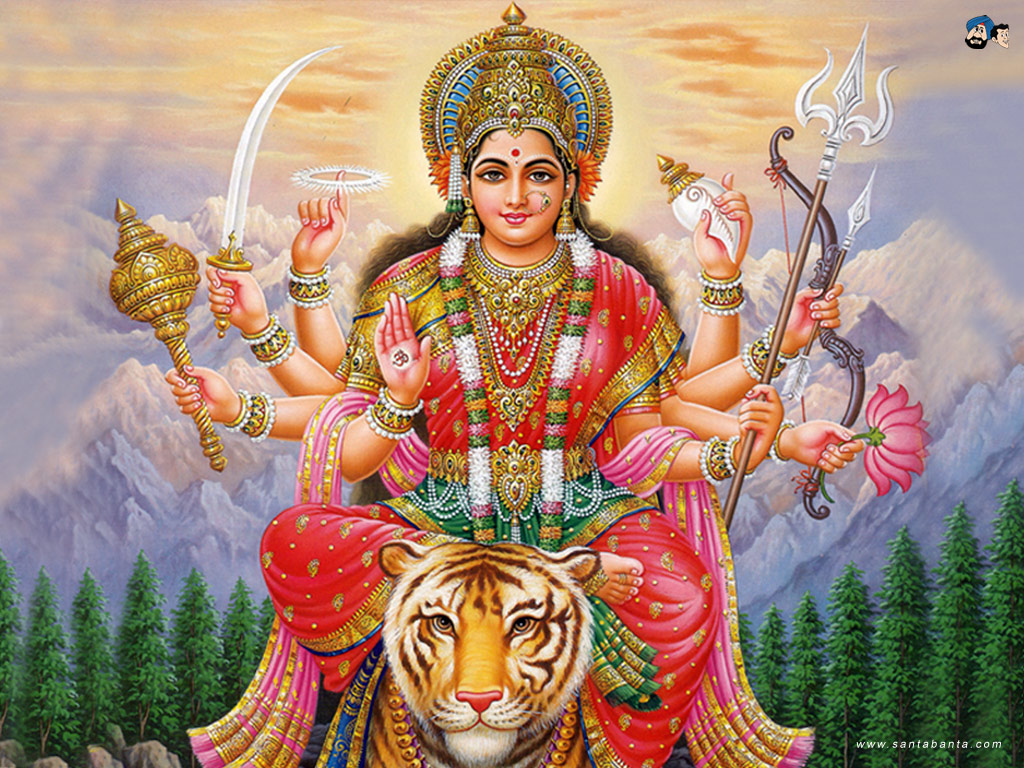
"CONSIDER THE LILIES OF THE FIELD, HOW THEY GROW. THEY TOIL NOT, NEITHER DO THEY SPIN, AND YET I SAY UNTO YOU THAT EVEN SOLOMON IN ALL HIS GLORY WAS NOT ARRAYED LIKE ONE OF THESE.... TAKE THEREFORE NO THOUGHT FOR THE MORROW, FOR THE MORROW SHALL TAKE THOUGHT FOR THE THINGS OF ITSELF."
And, "ASK AND IT SHALL BE GIVEN UNTO YOU, SEEK AND YE SHALL FIND, KNOCK AND IT SHALL BE OPENED UNTO YOU. FOR EVERYONE THAT ASKETH RECEIVETH, AND HE THAT SEEKETH FINDETH, AND TO HIM THAT KNOCKETH, IT SHALL BE OPENED."
In these two statements, the whole of religion is contained. If you can meditate on these two small statements, the vast sky of all Buddhahood becomes available to you. You need not read a thousand and one books. A small statement meditated upon, absorbed, digested, is enough to transform you.
These statements of Buddha or Jesus or Mahavir or Krishna, Mohammed, are seeds. Let them sink into your heart and sooner or later they will start sprouting. And sooner or later you will be full of great flowers, and you will be full of a fragrance that is not of this world. Only when that fragrance has come to you will you know what the seers of the Upanishads are saying; you will know what Lao Tzu means in the TAO TE CHING; you will know what the Koran is; and you will be able to enter into the world of the Vedas -- never before it.
So the last thing today I would like to say to you is: One never comes to truth by reading books. One comes to truth first, and then one recognizes it in books. Books become then witnesses. It is not that first you study the Vedas and become a great scholar of the Vedas, and then you will know truth. No, first you enter your innermost core, know the truth, and then all the Vedas will come as witnesses to you. They will be standing there as certificates to you, and not only the Vedas: the Bible and the Koran and the Gita and the Dhammapada -- EVERY statement of every enlightened person, of every Buddha in the world, will support you.
If only the Vedas support you and the Koran does not support you, something is wrong. Then you have not yet arrived. If only Jains support you and Christians not, then something is wrong. You have not yet arrived -- because whenever somebody arrives -- REALLY arrives -- all the Buddhas, the whole world of the knowers, supports you.
The ignorant people may be against you, that is not the point. The people who don't know, they can be forgiven. But the Koran and the Bible and the Dhammapada will be with you. You will have the blessings of all the Buddhas. You will become again a vehicle for them to enter into the world of ignorance, to enter into this darkness of humanity.
Each Buddha again represents all the Buddhas.
.jpg)
Next: Chapter 4: Therapy is a Function of Love, Question 1
Energy Enhancement Enlightened Texts Zen Paradox, Vol. 3
| ENERGY
|
GAIN ENERGY APPRENTICE
LEVEL1
|
THE ENERGY BLOCKAGE REMOVAL
PROCESS
|
THE KARMA CLEARING
PROCESS APPRENTICE LEVEL3
|
MASTERY
OF RELATIONSHIPS TANTRA APPRENTICE LEVEL4
|
|
ENERGY ENHANCEMENT TESTIMONIALS EE LEVEL1 EE LEVEL2 EE LEVEL3 EE LEVEL4 EE FAQS |




|
ENERGY ENHANCEMENT TESTIMONIALS EE LEVEL1 EE LEVEL2 EE LEVEL3 EE LEVEL4 EE FAQS |